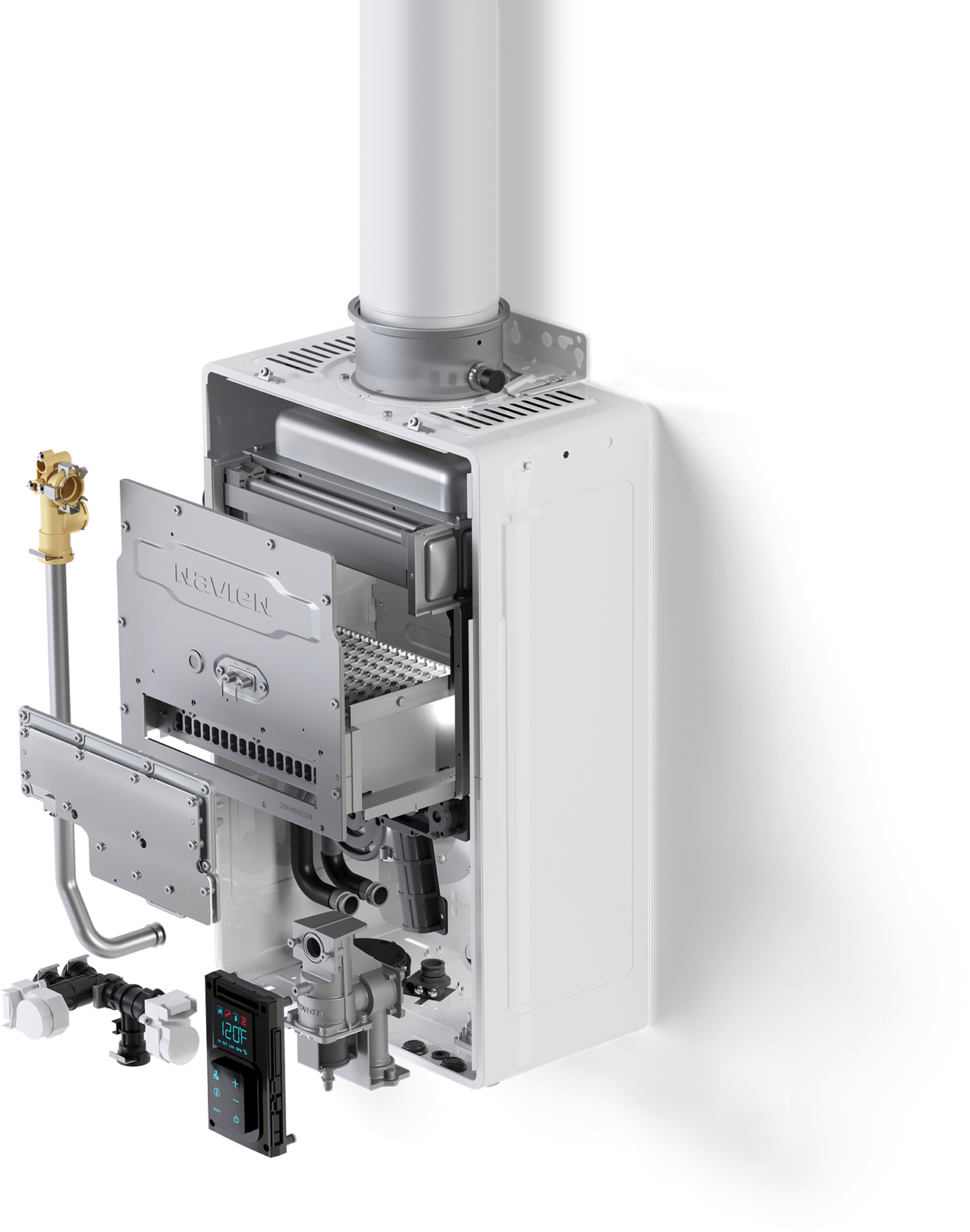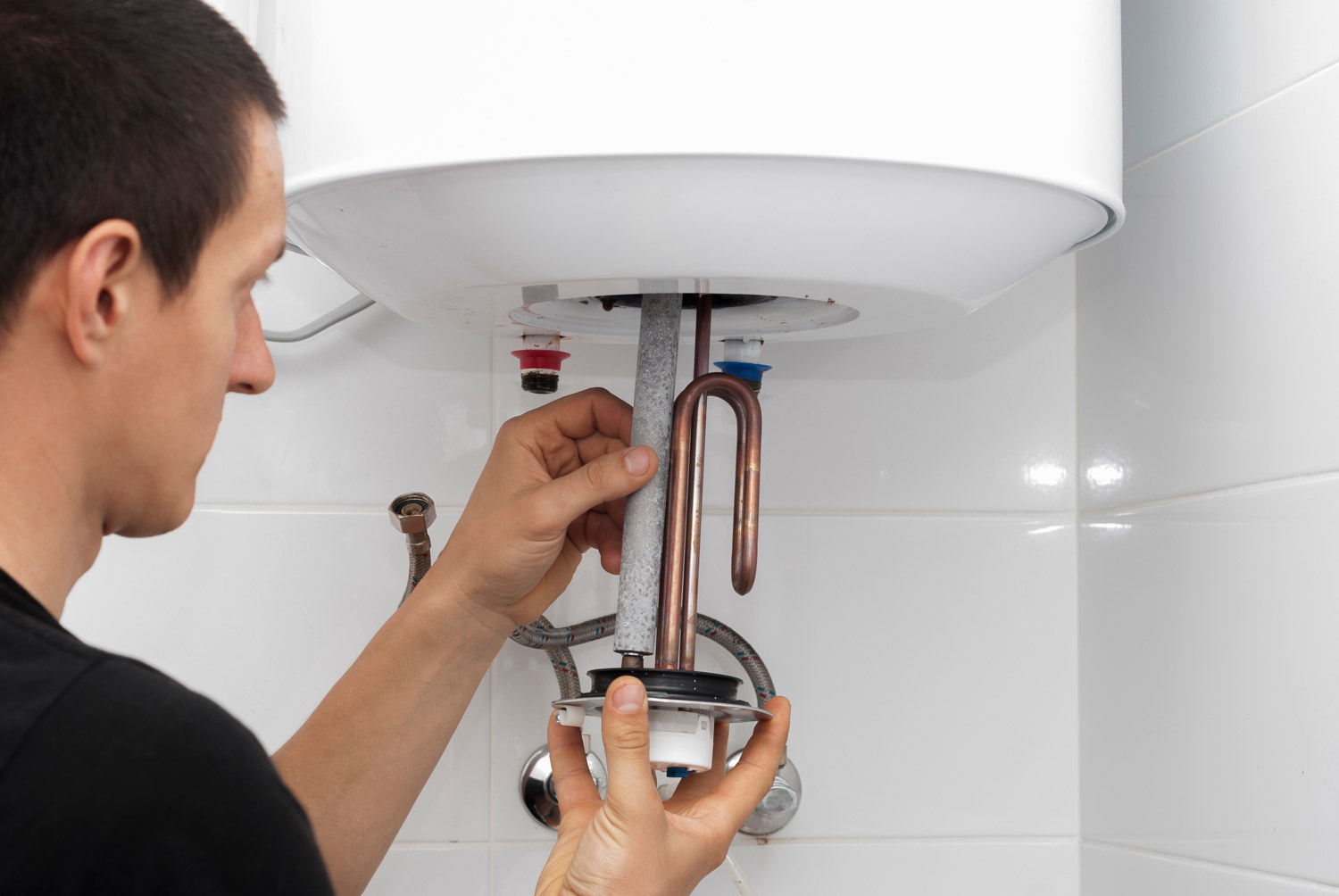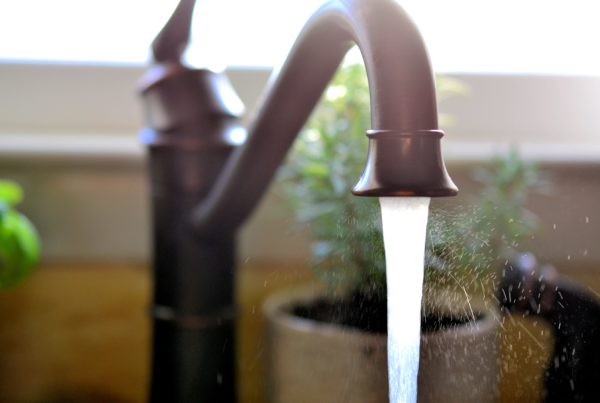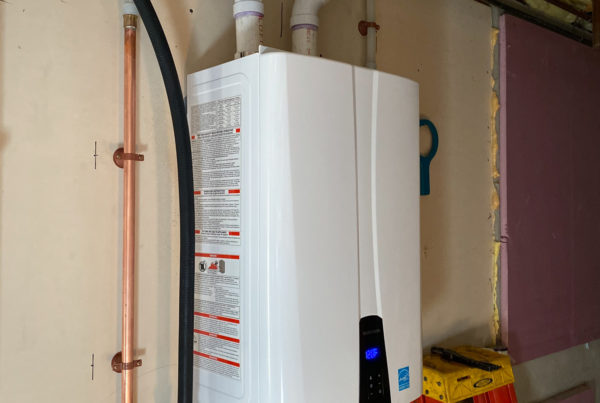Considering making the switch to a tankless water heater? You’re not alone. Many homeowners are making the change to a tankless system because for them, the benefits far outweigh those of a standard tank. Is a tankless water heater a worthwhile investment for you? We’ll help you answer that question by examining how these heaters work, comparing them to the standard hot water tank, and listing the benefits most enjoyed by owners of a tankless water heater.
How does a tankless water heater work?
Tankless water heaters work differently from traditional tanks in a few key ways. To summarize, tankless water heaters (also called on-demand water heaters) deliver a continuous flow of hot water for as long as you need it, with no waiting around for a tank to heat more water. You may ask, how is a tankless heater able to provide all the hot water you need with no wait between uses? To get a look inside the magic, take a look inside a tankless water heater.







